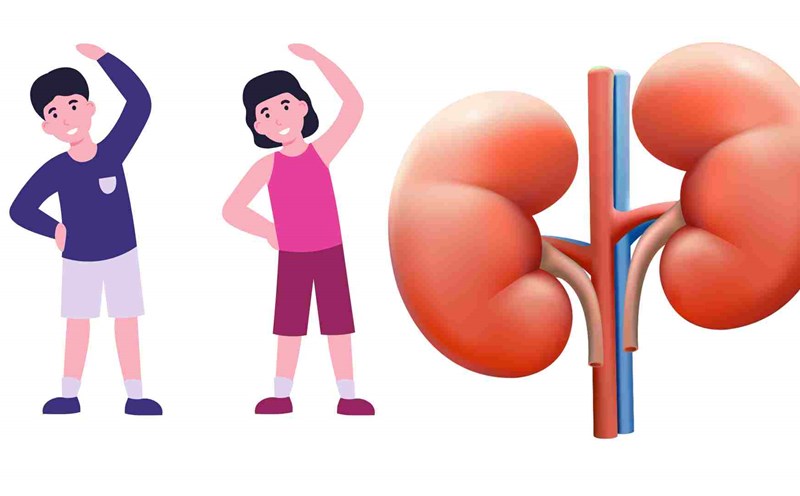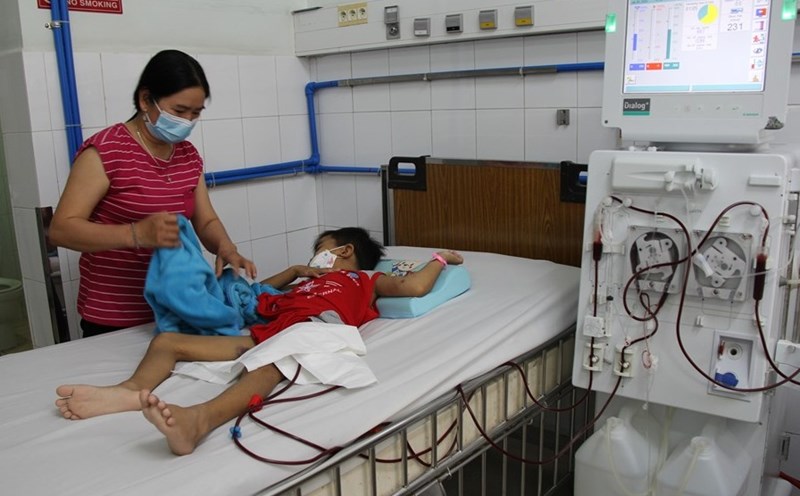According to Dr. Vo Thi Bach Thuy - Department of Nephrology, Thu Duc Regional General Hospital, chronic kidney disease often progresses through many stages, from mild kidney damage to serious functional impairment. Accurately determining the stage of the disease helps doctors come up with a suitable treatment regimen, thereby improving the patient's prognosis.
Common causes of this condition include diabetes, high blood pressure, nephritis and polycystic kidney disease. When the cause is determined, the doctor can develop a more effective control strategy.
Depending on the pathogen and related factors, the disease can progress slowly or rapidly. Therefore, close monitoring is necessary to detect complications early and make timely adjustments.
In addition, patients need to listen to their bodies and pay attention to common symptoms such as fatigue, edema, shortness of breath, loss of appetite, nausea, itchy skin, cramps, sleep disturbances and impaired sexual function. Recording these signs and reporting them to the doctor helps the assessment and treatment to be carried out more promptly and accurately.
Compliance with treatment is one of the key factors that help control the disease. Patients need to use the drug at the right dose and time as prescribed. Periodic re -examination is also important for doctors to monitor the progression of the disease and adjust the treatment regimen if necessary. In addition, many patients with chronic kidney disease also accompanied by conditions such as diabetes, hypertension or cardiovascular disease. Good management of these accompanying diseases can help minimize the risk of serious complications.
A reasonable diet plays an important role in the treatment process. Patients need to limit the amount of salt in their diet to control blood pressure and reduce edema. Reducing protein consumption also helps reduce the burden on the kidneys, but it is still necessary to ensure adequate nutrition.
In addition, controlling the amount of potassium and phosphorus in food helps prevent complications of cardiovascular and bone marrow. Drinking enough water as instructed by your doctor is also important to support kidney filtering function.
Maintaining a healthy lifestyle is a positive support factor during treatment. Patients should do light exercise such as walking, yoga or swimming to improve cardiovascular health and reduce stress.
Getting 78 hours of sleep each night helps the body recover and increase resistance. In addition, quitting smoking, limiting alcohol and controlling your weight appropriately will significantly reduce pressure on the kidneys.
Mental health also needs to be taken care of. Patients should apply stress reduction methods such as meditation, yoga or listening to music. Sharing worries and emotions with relatives, friends or psychologists helps relieve pressure and increase treatment motivation.
Finally, close cooperation with doctors is the foundation for disease management. Patients need to proactively discuss and clarify symptoms or difficulties in the treatment process so that the doctor has a basis for timely adjustment. Following the correct regimen and having regular check-ups will help control the disease effectively and improve the quality of life.









